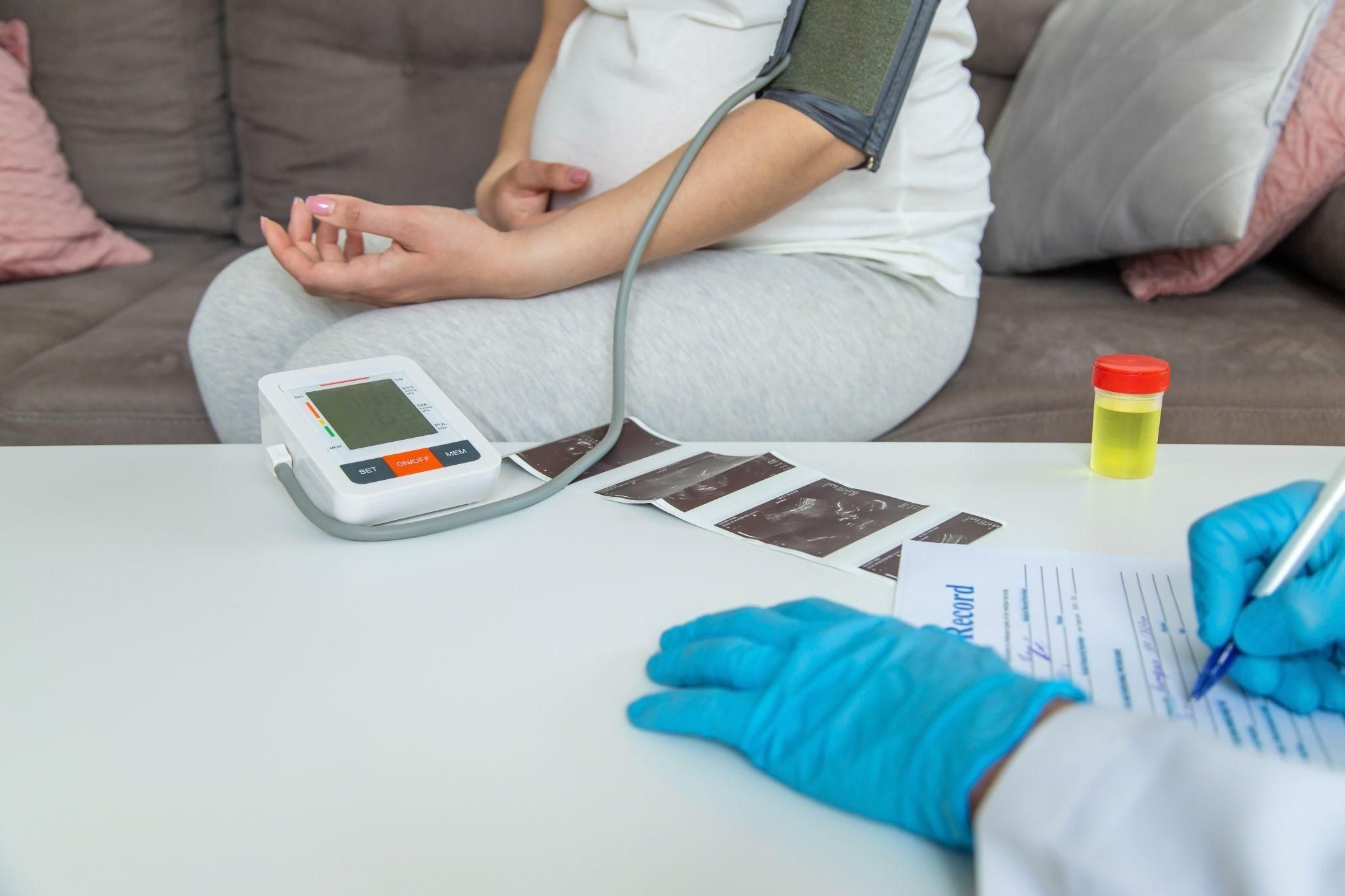Pregnancy is an exciting yet sometimes overwhelming journey, filled with new experiences and important decisions. During your antenatal appointments, you might hear your healthcare provider mention something called the RhoGAM vaccine, especially if your blood type is Rh-negative. The term might be unfamiliar, and it’s natural to have concerns about any treatments or vaccinations you’re offered during pregnancy. This article will explain what the RhoGAM vaccine is, why it might be necessary, and how it helps protect both you and your baby.
In the UK, the RhoGAM vaccine is part of antenatal care for Rh-negative mothers. We’ll explore everything you need to know about the RhoGAM injection (also referred to as Anti-D), including when you might need it, the risks of not having it, and how it fits into your overall pregnancy care.
What Is the RhoGAM Vaccine?
The RhoGAM vaccine, also known as Anti-D immunoglobulin, is a blood product given to pregnant women who have Rh-negative blood. Its main purpose is to prevent a condition called Rhesus disease, which can occur when an Rh-negative mother is carrying an Rh-positive baby. Rh-positive refers to the presence of a protein called the Rh factor on the surface of red blood cells. If you are Rh-negative and your baby is Rh-positive, there is a risk that your body could see your baby’s Rh-positive blood cells as foreign and start producing antibodies against them.
These antibodies, once formed, could cross the placenta and attack the baby’s red blood cells, leading to serious complications such as anaemia, jaundice, or even heart failure in the unborn baby. To prevent this, the RhoGAM vaccine is administered to Rh-negative mothers during pregnancy, typically between 28 and 30 weeks, and again after birth if the baby is confirmed to be Rh-positive NHS: Rhesus Disease.
Why Is the RhoGAM Vaccine Important?
If you are Rh-negative, your healthcare provider will discuss the Anti-D injection with you during your antenatal checkups. The goal is to prevent the formation of antibodies that could lead to complications in future pregnancies or in the current one if there’s been any exposure of your immune system to Rh-positive blood cells.
While your blood and your baby’s blood don’t usually mix during pregnancy, there are certain events that increase the risk of blood mixing. These include:
Miscarriage or ectopic pregnancy
Bleeding during pregnancy
Abdominal trauma (e.g., from a fall or car accident)
Invasive prenatal procedures like amniocentesis or chorionic villus sampling (CVS)
During childbirth, especially if delivery involves a C-section or a significant loss of blood
Administering the RhoGAM vaccine helps prevent your immune system from reacting to the baby’s blood and protects your baby from Rhesus disease.
Do All Pregnant Women Need the RhoGAM Vaccine?
No, not all pregnant women need the RhoGAM vaccine. It is specifically recommended for women who are Rh-negative and at risk of carrying an Rh-positive baby. To determine whether you need the vaccine, your blood type is tested early in pregnancy, usually during your first antenatal appointment.
If your blood type is Rh-negative, your healthcare provider will also offer blood tests to check whether you’ve already developed Rh antibodies. This is called an indirect Coombs test. If antibodies are present, it means your immune system has already been sensitised to Rh-positive blood, and further management will be required to monitor the pregnancy closely.
If no antibodies are detected, the Anti-D injection will be offered as a preventive measure to stop your body from producing them. Most women receive the first dose between 28 and 30 weeks of pregnancy, with a second dose given after delivery if the baby is Rh-positive. If the baby is Rh-negative, no further injections are needed.
How Does the RhoGAM Vaccine Work?
The RhoGAM vaccine works by providing passive immunity. It contains Anti-D immunoglobulin, which attaches to any Rh-positive cells that may have entered your bloodstream from the baby. By doing this, it prevents your immune system from recognising the cells as foreign and creating long-lasting antibodies. Essentially, it stops your body from mounting an immune response that could affect your baby or future pregnancies.
It’s important to note that the Anti-D injection is considered safe for both mother and baby. The injection doesn’t stay in your system for long, and it does not affect your baby’s development in any way.
Are There Any Side Effects of the RhoGAM Vaccine?
Most women tolerate the RhoGAM vaccine very well, and side effects are rare. However, as with any medication, there may be some mild side effects, such as:
Soreness or swelling at the injection site
Mild fever
Fatigue
These side effects typically resolve on their own within a day or two. Severe reactions are extremely rare, but if you notice any signs of an allergic reaction, such as difficulty breathing, swelling of the face or throat, or hives, seek immediate medical attention. Your midwife or doctor will always discuss any potential risks and benefits with you before administering the injection.
What Happens If I Don’t Get the RhoGAM Vaccine?
For Rh-negative women, not receiving the RhoGAM vaccine can have significant consequences, particularly in future pregnancies. If your body is sensitised to Rh-positive blood, it will start producing antibodies that could attack the red blood cells of an Rh-positive baby in a future pregnancy. This can lead to Rhesus disease, also known as haemolytic disease of the newborn (HDN).
In severe cases, HDN can cause:
Anaemia (low red blood cell count)
Jaundice (yellowing of the skin and eyes)
Heart failure
Brain damage (due to high levels of bilirubin)
Stillbirth
By receiving the RhoGAM vaccine, you can significantly reduce the risk of these complications for both your current and future pregnancies. It’s important to follow your healthcare provider’s recommendations during antenatal care to ensure both you and your baby remain healthy.
How Does the RhoGAM Vaccine Fit Into Antenatal Care?
In the UK, the Anti-D injection is part of standard antenatal care for Rh-negative women. It’s administered as part of your routine antenatal appointments and follows national guidelines designed to keep both mother and baby safe. The NHS provides detailed information about the Anti-D injection and why it’s an essential component of pregnancy care for Rh-negative mothers NHS: Anti-D Immunoglobulin.
The administration of the vaccine is typically straightforward and doesn’t require any special preparation on your part. It’s usually given in the arm or buttock as an intramuscular injection. After receiving the injection, your midwife will continue monitoring your pregnancy through regular antenatal checkups to ensure everything is progressing smoothly.
Supporting Your Pregnancy Journey
Managing your health during pregnancy goes beyond vaccinations. To support a healthy pregnancy, consider integrating other aspects of pregnancy care, such as maintaining a balanced diet, staying active with safe exercises like antenatal yoga, and taking antenatal vitamins as recommended by your healthcare provider. You might also want to explore relaxation techniques, such as prenatal massage, to help manage stress and discomfort during pregnancy.
If you have concerns about the RhoGAM vaccine or any aspect of your antenatal care, always feel free to discuss these with your midwife or doctor. It’s essential to feel comfortable and informed about the care you’re receiving, and your healthcare team is there to provide reassurance and answer any questions you may have.
The RhoGAM Vaccine Is a Safe and Essential Part of Antenatal Care for Rh-Negative Mothers
If you are Rh-negative, the RhoGAM vaccine (Anti-D immunoglobulin) plays a crucial role in preventing complications related to Rhesus disease. It is an important component of antenatal care in the UK, offered to Rh-negative women during pregnancy clinic visits to protect both the mother and baby from the potential risks of Rh incompatibility.
The vaccine is safe, effective, and well-tolerated, with minimal side effects. By receiving it at the recommended time, you can help ensure the health of your baby during this pregnancy and reduce the risk of complications in future pregnancies. If you have concerns, remember that your healthcare provider is always available to provide information, support, and reassurance.
References
- The Ultimate Antenatal Classes
Prepare for labour, birth, and baby care with nine experts, including senior NHS midwives and an award-winning obstetrician!
https://unii.com/en/journey/ultimate-antenatal-classes









